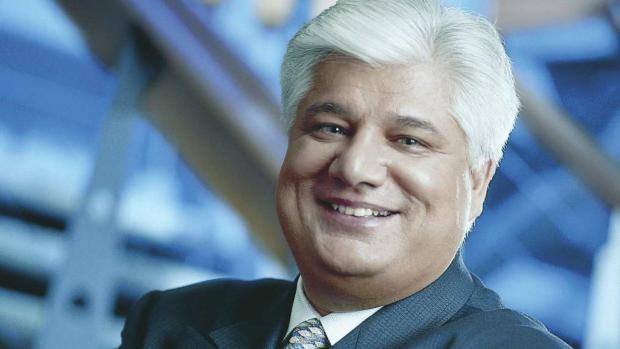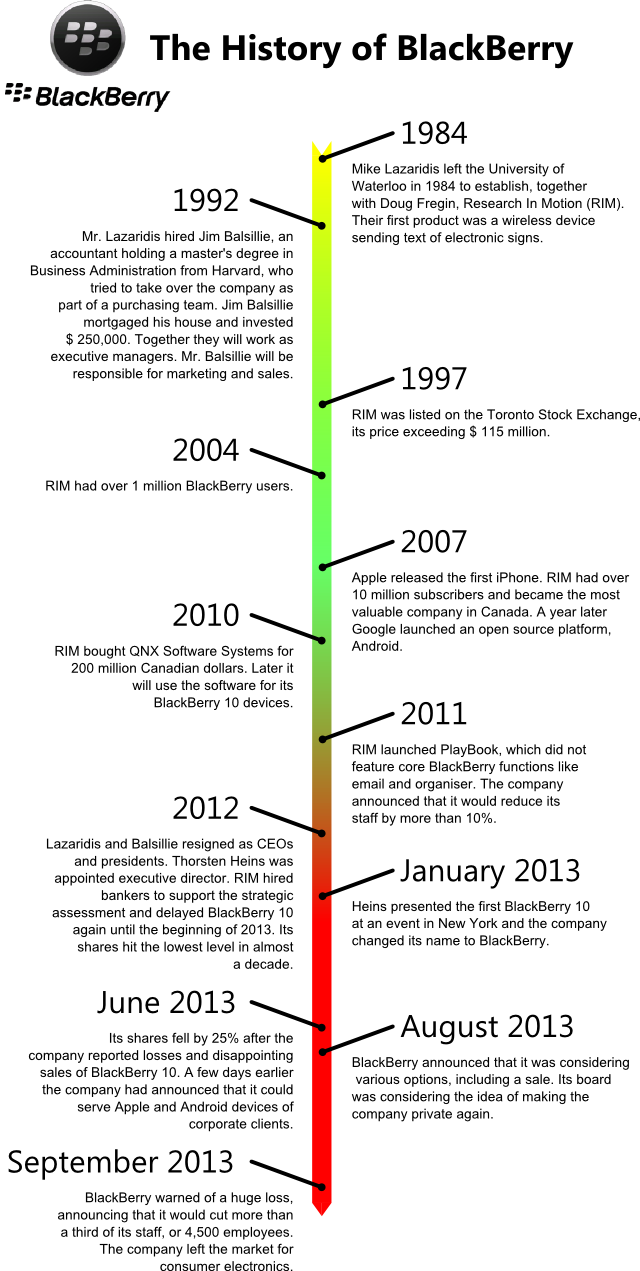Ivan Petkov
Did you know that the original idea for Android operating system, which now holds over 80% of the smartphone market, was not to compete with iOS of Apple but with BlackBerry? Moreover, Android is designed to run on devices like BlackBerry, which have a keyboard but do not have touch sensors. At that time, iPhone appeared, changing everything but that is another story.
I want to introduce one of the pioneers in smartphone devices and a leader in the corporate market for smart phones, namely the company BlackBerry which, for many years, was called Research In Motion (RIM). The devices for which it is known all over the world are called BlackBerry and their name was chosen by Lexicon Branding, because of the shape of the keyboard of the first phones produced by the company as their buttons resembled the berries of the sweet forest fruit.
An interesting fact in the history of the company is that, during almost its entire existence, two executives, namely Mike Lazaridis and Jim Balsillie, managed it. They say that they are like the two sides of the same coin. Mike Lazaridis is the technical genius and Jim Balsillie is the man behind the marketing activities.
|

Michael "Mike" Lazaridis (in Greek: Μιχαήλ (Μιχάλης) Λαζαρίδης; born on 14 March 1961) is a Greek - Canadian businessman, an investor in quantum computing, and a founder and vice -president of BlackBerry. In 1999, he founded the Perimeter Institute for Theoretical Physics. He is a former rector of the University of Waterloo and an officer of the Order of Canada. As a passionate advocate of the power of science as a means to improve and change the world in March 2013, he founded Quantum Valley Investments along with his childhood friend and co-founder of BlackBerry Douglas Fregio. Their aim is to provide financial and intellectual capital for the further development of discoveries in quantum information science. With a fortune of $ 800 million in the USA (as of June 2011), Lazaridis was ranked by Forbes as the 17th wealthiest Canadian and 651st in the world.
|
Here is the history of the company in brief:

The fact is that the company, like the other giant in the field of mobile technology Nokia, failed to adapt to the revolution brought to the market by iPhone and the new generation of smartphones. Moreover, regarding iPhone, both Mike Lazaridis and the now former CEO of Microsoft Steve Ballmer had openly expressed their doubts about the success of Apple devices. Lazaridis is a man of facts and technology and his criticisms were mainly in this direction. At the time, he expressed doubt that a phone that has an operating system of more than 700 MB and needs constant internet connection to function as designed would be successful. According to the co-founder of BlackBerry, iPhone would be very expensive to manufacture, heavy to work with and it would block the networks of the operators. Moreover, he was not far from the truth. The first iPhone did not have many features and really provoked dissatisfaction on the part of customers and operators for the use of the internet - the first because of the high bills and the latter because of the overloading of their networks. However, technology is rapidly developing and, ultimately, it appears that Steve Jobs was right. Obviously, the logic of today is not a successful strategy for business development and BlackBerry is very well aware of this bitter experience.
What made the company successful? Well, those were the factors, which would subsequently mislead it. BlackBerry provided its own secure infrastructure that was very well accepted by companies. The security and protection of internal information was one of the topics of concern of the corporate sector. The email service and the integration with other business systems were the advantages that had turned BlackBerry into a sole leader in the field of corporate mobile solutions. Here we should mention that, in connection with the scandal of submitting data to the intelligence services of North American countries, BlackBerry had officially stated that it had not submitted such data and that their encrypted network was difficult to wiretap. All this combined with a physical keyboard and large screen had made BlackBerry an exceptional business phone.

Thorsten Heins
The problems appeared when iPhone and Android became so popular among private customers that the companies had increasingly started to allow their employees to use devices running these two platforms. Nobody likes carrying two phones. BlackBerry had rapidly begun to lose customers. After unsuccessful attempts to intervene in the market of consumer devices, the company was faced with a major crisis, the largest in its history. After the most significant loss in its existence and unprecedented layoffs, CEO Thorsten Heins was released from his post. The board sought someone who had experience in crises and in the recovery of troubled companies, finding these skills in John Chen. Chen had become known as the head of the software company Sybase which, in 2010, was acquired by SAP against several billion dollars. His new job is defined as a suicide mission in the industry.
 John Chen
John Chen
BlackBerry will "sweeten" the post of new CEO John Chen with a comprehensive package of benefits. The base salary will amount to $ 1 million as announced on Thursday evening by the Canadian company the future of which depends on its immediate success on the smartphone market. The bonus of the new head can be two times higher than the salary. Shares worth approximately $ 85 million that Chen will receive only after a few years of corporate identity should be added to this as well. If Chen is fired without a cause, he will not leave empty-handed. According to the documents, BlackBerry will provide him with up to $ 6 million. So, it seems that Heins was "loaded with money" too.
The pioneer in mobile telephony, BlackBerry, has surprisingly announced that it has terminated its search for a buyer and will try to make a turnaround under its own steam. Rumours had it that some of the leaders in the technology sector were interested in the company, several Chinese companies being the most active. The Canadian government has expressed its support for BlackBerry as, in addition to purely economic factors, there are more than a few considerations related to the technology and the information that is being transferred through the servers of BlackBerry.
It is expected that Chen, who has replaced Heins, will be able, by using an injection of $ 1 billion, including from the financial operator Fairfax, to put BlackBerry back on the track to success. BlackBerry reported a loss of $ 1 billion in the last quarter alone while its rivals Samsung and Apple are continuing to gain profits.